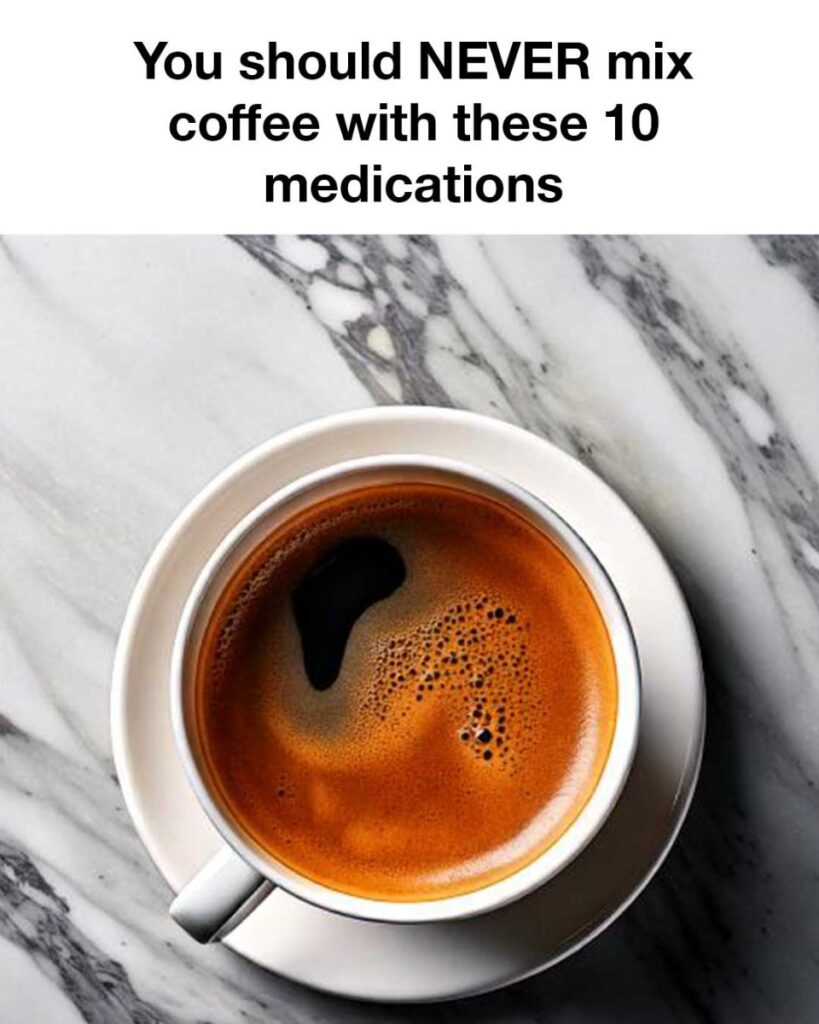The Hidden Impact of Coffee on Medications
Millions of people enjoy coffee for its energizing effects and rich flavor. However, coffee can interact with certain medications, potentially affecting their effectiveness or causing adverse effects. Knowing about these interactions is essential to ensure medications work as intended.
How Coffee Affects the Body
Coffee contains caffeine, a stimulant that affects the central nervous system by boosting alertness, mood, and cognitive function. However, caffeine also impacts how the body metabolizes certain drugs, potentially speeding up or slowing down their absorption.
Risks of Combining Coffee with Medications
Mixing coffee with certain medications may reduce drug effectiveness or increase side effects, sometimes with serious consequences. Here are some common medications that can interact with coffee:
Antidepressants: Especially with MAOIs, caffeine can elevate blood pressure and heart rate, which may be risky for those with cardiovascular concerns.
Antipsychotics: Caffeine can speed up the metabolism of these drugs, reducing their therapeutic effects.
Blood Thinners: Caffeine may enhance blood-thinning effects, raising the risk of bleeding.
Thyroid Medications: Coffee can interfere with thyroid medication absorption. Waiting 30–60 minutes after taking the medication before drinking coffee is recommended.
Antibiotics: Some antibiotics, like ciprofloxacin, may cause jitteriness or insomnia when combined with caffeine and may lose effectiveness.

Antibiotics: Some antibiotics, like ciprofloxacin, may cause jitteriness or insomnia when combined with caffeine and may lose effectiveness.
Osteoporosis Medications: Coffee interferes with the absorption of medications like bisphosphonates. Take these with water and avoid coffee for at least 30 minutes afterward.
Heart Medications: Caffeine may counteract beta-blockers, leading to elevated heart rate and blood pressure.
Antihistamines: Caffeine can amplify drowsiness, increasing sedation and affecting coordination.
Anti-Anxiety Medications: Caffeine can reduce the calming effects of anti-anxiety drugs, sometimes increasing anxiety symptoms.
Pain Relievers: Excessive caffeine may irritate the stomach or increase heart rate, so stick to recommended dosages.
Guidelines for Coffee Consumption with Medications
To avoid interactions, space out coffee consumption and follow medication instructions carefully. Consult your healthcare provider if you have any concerns.
In Conclusion
Coffee is a beloved daily ritual, but it’s essential to be aware of potential interactions with medications. Staying informed and seeking advice from healthcare professionals can help you enjoy coffee safely alongside your medications.

